The average cost of EPS & RFA in Switzerland starts from CHF 16340 (USD 19000)
EPS or electrophysiology study is a test method directed to perceive how the electric driving forces leads through the pathways of your heart. In the event that the conduction pathway is typical, it shows your pulses are ordinary. On the off chance that if anomalous signs are recognized it shows arrhythmia or unpredictable heart thumps.
RFA or Radiofrequency Ablation is a kind of intrusive surgery directed to treat particular sorts of arrhythmias.
Both EPS and RFA can be directed simultaneously. Typically a specialist relegates both the methods together. EPS is directed to analyze the nearness of arrhythmia. In view of the nature and sort of arrhythmia RFA is led as a treatment method.
Some risk factors likewise pop when working with arrhythmia:
In spite of the way that India has the absolute best cardiovascular master and cutting edge super claim to fame care the expense of treatment is around 1/tenth of UK or USA.
The expense of the method relies upon the nature and sort of arrhythmia anyway the complete expense incorporates
| Country | Cost | Local_currency |
|---|---|---|
| Czechia | USD 12000 | Czechia 272280 |
| Greece | USD 11250 | Greece 10350 |
| India | USD 2500 | India 207875 |
| Israel | USD 18000 | Israel 68400 |
| Malaysia | USD 8000 | Malaysia 37680 |
| Poland | USD 5100 | Poland 20604 |
| South Korea | USD 20000 | South Korea 26853800 |
| Spain | USD 16000 | Spain 14720 |
| Switzerland | USD 19000 | Switzerland 16340 |
| Thailand | USD 7800 | Thailand 278070 |
| Turkey | USD 9500 | Turkey 286330 |
| United Arab Emirates | USD 19000 | United Arab Emirates 69730 |
Treatment cost
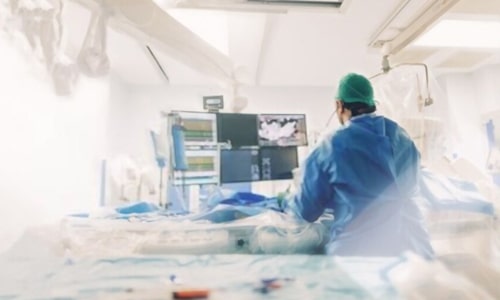
Some of the key inclusions which we provide as additional benefits of the package are:
We offer packages at reasonable pricing that include a variety of additional advantages, making it a better deal than paying for individual perks at the hospital. EPS or Electrophysiology Studies diagnoses the issue, and RFA is the treatment. Usually RFA is done in one sitting as a continual process with EPS. EP study stimulates as well as diagnoses heart rhythms which are abnormal. They also are an identification for affected heart areas. RFA is actually a minimally invasive procedure and is known as fulguration. In this process some of the electrical conduction system of your heart, or tumor or any other tissue which is dysfunctional is ablated via the heat from alternating current of medium frequency., We bring to you various benefits through our comprehensive package in tie up with Pushpawati Singhania Research Institute of India.
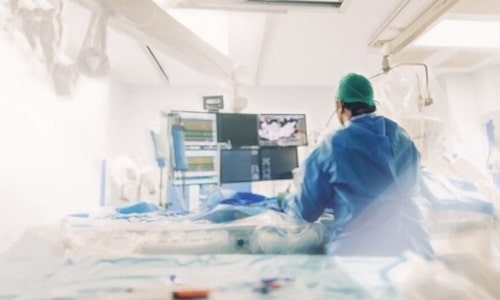
We provide numerous services for your medical journey, including:
We offer packages at reasonable pricing that include a variety of additional advantages, making it a better deal than paying for individual perks at the hospital. EPS or Electrophysiology Studies diagnoses the issue, and RFA is the treatment. Usually RFA is done in one sitting as a continual process with EPS. EP study stimulates as well as diagnoses heart rhythms which are abnormal. They also are an identification for affected heart areas. RFA is actually a minimally invasive procedure and is known as fulguration. In this process some of the electrical conduction system of your heart, or tumor or any other tissue which is dysfunctional is ablated via the heat from alternating current of medium frequency., We bring to you various benefits through our comprehensive package in tie up with Medicana Camlica Hospital of Turkey.
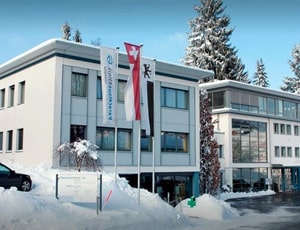
Apart from in-detail treatment procedures available, Paracelsus Clinic located in Lustmuhle, Switzerland has a wide variety of facilities available for International Patients. Some of the facilities which are provided by them are Accommodation, Airport Transfer, Choice of Meals, Interpreter, SIM, TV inside room. Also listed below are some of the most prominent infrastructural details:

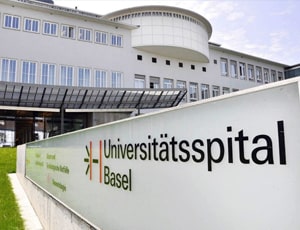
University Hospital located in Basel, Switzerland is accredited by ISO. Also listed below are some of the most prominent infrastructural details:
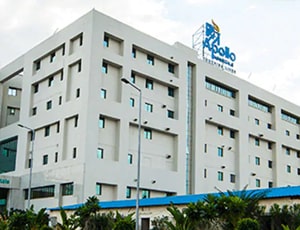
Types of EPS & RFA in Apollo Hospital and its associated cost
| Treatment Option | Approximate Cost Range (USD) | Approximate Cost Range (INR) |
|---|---|---|
| Electrophysiology Study (EPS) | 2788 - 4579 | 230506 - 365923 |
| Radiofrequency Ablation (RFA) | 3443 - 5509 | 282691 - 454919 |
DOCTORS IN 13 SPECIALITIES
FACILITIES & AMENITIES
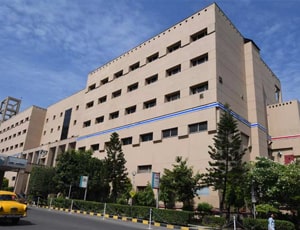
Types of EPS & RFA in Apollo Multispecialty Hospitals and its associated cost
| Treatment Option | Approximate Cost Range (USD) | Approximate Cost Range (INR) |
|---|---|---|
| Electrophysiology Study (EPS) | 2868 - 4535 | 233192 - 369624 |
| Radiofrequency Ablation (RFA) | 3345 - 5603 | 271049 - 458132 |
DOCTORS IN 13 SPECIALITIES
FACILITIES & AMENITIES
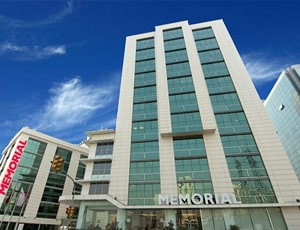
Types of EPS & RFA in Memorial Atasehir Hospital and its associated cost
| Treatment Option | Approximate Cost Range (USD) | Approximate Cost Range (TRY) |
|---|---|---|
| Electrophysiology Study (EPS) | 10800 - 15785 | 322069 - 473112 |
| Radiofrequency Ablation (RFA) | 11186 - 18211 | 335160 - 537997 |
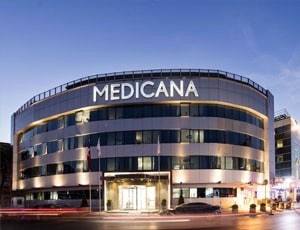
Types of EPS & RFA in Medicana Bahcelievler Hospital and its associated cost
| Treatment Option | Approximate Cost Range (USD) | Approximate Cost Range (TRY) |
|---|---|---|
| Electrophysiology Study (EPS) | 10838 - 15438 | 316121 - 472024 |
| Radiofrequency Ablation (RFA) | 11061 - 17983 | 334694 - 551125 |
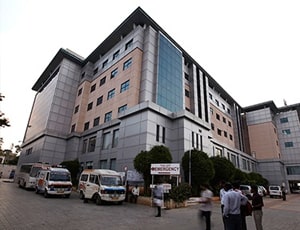
Types of EPS & RFA in BGS Gleneagles Global Hospitals and its associated cost
| Treatment Option | Approximate Cost Range (USD) | Approximate Cost Range (INR) |
|---|---|---|
| Electrophysiology Study (EPS) | 2830 - 4502 | 233980 - 372905 |
| Radiofrequency Ablation (RFA) | 3385 - 5658 | 279141 - 465814 |
DOCTORS IN 14 SPECIALITIES
FACILITIES & AMENITIES
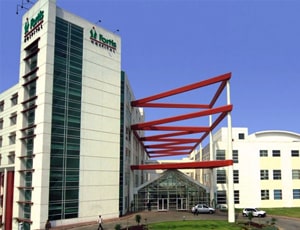
Types of EPS & RFA in Fortis Hospital and its associated cost
| Treatment Option | Approximate Cost Range (USD) | Approximate Cost Range (INR) |
|---|---|---|
| Electrophysiology Study (EPS) | 2535 - 4058 | 207924 - 331903 |
| Radiofrequency Ablation (RFA) | 3039 - 5083 | 249368 - 415526 |
DOCTORS IN 12 SPECIALITIES
FACILITIES & AMENITIES
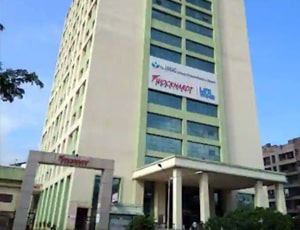
Types of EPS & RFA in Wockhardt Hospital, Umrao and its associated cost
| Treatment Option | Approximate Cost Range (USD) | Approximate Cost Range (INR) |
|---|---|---|
| Electrophysiology Study (EPS) | 2541 - 4069 | 207734 - 332503 |
| Radiofrequency Ablation (RFA) | 3054 - 5095 | 250051 - 417460 |
DOCTORS IN 13 SPECIALITIES
FACILITIES & AMENITIES
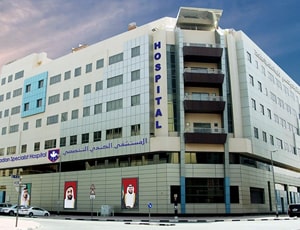
Types of EPS & RFA in Canadian Specialist Hospital and its associated cost
| Treatment Option | Approximate Cost Range (USD) | Approximate Cost Range (AED) |
|---|---|---|
| Electrophysiology Study (EPS) | 21085 - 31684 | 79762 - 116496 |
| Radiofrequency Ablation (RFA) | 22291 - 33941 | 84096 - 123366 |

Types of EPS & RFA in Indraprastha Apollo Hospital and its associated cost
| Treatment Option | Approximate Cost Range (USD) | Approximate Cost Range (INR) |
|---|---|---|
| Electrophysiology Study (EPS) | 2804 - 4490 | 230330 - 365072 |
| Radiofrequency Ablation (RFA) | 3321 - 5675 | 277707 - 452916 |
DOCTORS IN 14 SPECIALITIES
FACILITIES & AMENITIES
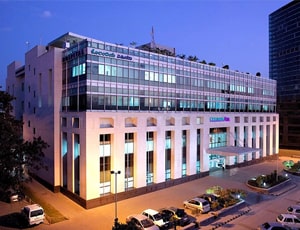
Types of EPS & RFA in Manipal Hospital, Yeshwantpur and its associated cost
| Treatment Option | Approximate Cost Range (USD) | Approximate Cost Range (INR) |
|---|---|---|
| Electrophysiology Study (EPS) | 2784 - 4495 | 228445 - 372653 |
| Radiofrequency Ablation (RFA) | 3379 - 5652 | 275044 - 465192 |
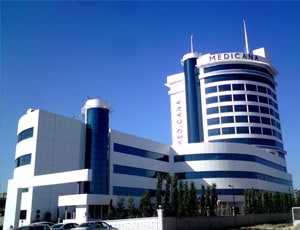
Types of EPS & RFA in Medicana Konya Hospital and its associated cost
| Treatment Option | Approximate Cost Range (USD) | Approximate Cost Range (TRY) |
|---|---|---|
| Electrophysiology Study (EPS) | 10748 - 15522 | 315013 - 467836 |
| Radiofrequency Ablation (RFA) | 11264 - 18240 | 346065 - 552027 |
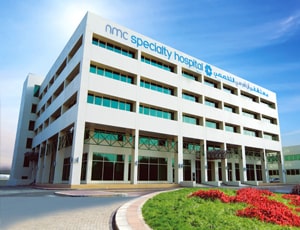
Types of EPS & RFA in NMC Specialty Hospital - Al Ain and its associated cost
| Treatment Option | Approximate Cost Range (USD) | Approximate Cost Range (AED) |
|---|---|---|
| Electrophysiology Study (EPS) | 21134 - 31865 | 78174 - 115949 |
| Radiofrequency Ablation (RFA) | 22086 - 33398 | 81615 - 122614 |
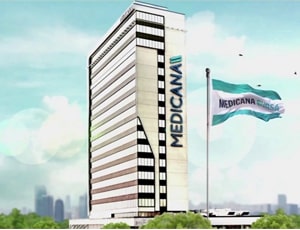
Types of EPS & RFA in Medicana Bursa Hospital and its associated cost
| Treatment Option | Approximate Cost Range (USD) | Approximate Cost Range (TRY) |
|---|---|---|
| Electrophysiology Study (EPS) | 10555 - 16061 | 323079 - 481827 |
| Radiofrequency Ablation (RFA) | 11275 - 18053 | 344683 - 542603 |
Radiofrequency ablation (RFA) is a surgical procedure in which heat generated from medium frequency alternating current is used to ablate a tumour, a part of the electrical conduction system of the heart, or any other dysfunctional areas. The ablation therapy requires local anaesthesia and is done in an outpatient setting.
RFA is a popular treatment for the correction of any abnormality in the electrical system of the heart, which is confirmed during electrophysiology studies (EPS). During this test, the electrophysiology of heart is studied and any abnormalities are noted. The procedure used to correct the identified abnormalities associated with electrophysiology of heart is known as the cardiac ablation procedure.
The steps in the RFA procedure depends of the type of disorder that needs to be treated or the part of the body targeted.
Abnormal electrophysiology of heart that cause cardiac arrhythmias can be destroyed by radiofrequency energy. During cardiac ablation procedure, radiofrequency energy is used in atrial flutter, supraventricular tachycardia, multifocal atrial tachycardia and ventricular arrhythmia. The electrode at the tip of a catheter is placed into the heart through a vein. This type of catheter is called ablator. The physician first maps the specific area that is abnormal before starting the cardiac ablation surgery.
RFA is used to treat tumours of kidneys, liver, lung and bone. After tumour diagnosis is confirmed, a needle-like RFA probe is placed inside the tumour. Through this probe, the radiofrequency wave passes and increases the temperature of the tumour tissue. The increase in temperature destroys the tumour during ablation procedure.
Radiofrequency ablation therapy can also be used in dermatological conditions by using different forms of alternating current. The radiofrequency ablation can also be used to treat skin lesions with few side effects and complications.
Radiofrequency ablation is used in the treatment of varicose veins. Under ultrasound control, a radiofrequency catheter is inserted into the abnormal vein and the vessel treated with radio-energy and closes the involved vein. Radiofrequency ablation is used to treat the saphenous vein, the saphenous vein, and the perforator veins.
Immediately after cardiac ablation procedure, the patient is shifted to a recovery room for a few hours. There may be some level of numbness or weakness for a while, which goes away in a few hours. You will be asked to lie quietly for at least three to four hours.
During the first 48 hours, you may feel sore because of excessive lying down or experience a heart-beat which is strange. Bruises may appear at the site of catheter insertion, however, it goes away within two days. You will be instructed to avoid vigorous activities and weight lifting and advised to remove any bandages at bed time. You must avoid the catheter insertion site from getting wet.
You will be given an appointment after RFA to have a repeat scan. The scan helps to know how well the treatment is done. You must avoid bending of squatting and watch out for swelling or bleeding at the site of catheter insertion. It is important to take short walks every day. You can return back to work after 48 hours or whenever your doctor gives a go ahead.
Ask your healthcare adviser for the best multiple options and choose the one that meets your expectations
The cost of EPS & RFA procedure starts from USD 19000 in Switzerland. While there are wide range of hospitals offering EPS & RFA, international patients should always seek OECI, TEMOS-Certified Hospitals in Switzerland for the best results.
EPS & RFA package cost in Switzerland has different inclusions and exclusions. The top hospitals for EPS & RFA in Switzerland covers all the expenses related to the pre-surgery investigations of the candidate. The EPS & RFA cost in Switzerland includes the cost of anesthesia, medicines, hospitalization and the surgeon's fee. There are many things that may increase the cost of EPS & RFA in Switzerland, including prolonged hospital stay and complications after the procedure.
There are several best hospitals for EPS & RFA in Switzerland. Some of the most renowned hospitals for EPS & RFA in Switzerland include the following:
After EPS & RFA in Switzerland, the patient is supposed to stay in guest house for another 10 days. This duration of stay is recommended to complete all the necessary follow-ups and control tests to ensure that the surgery was successful.
Apart from the EPS & RFA cost, there are a few other daily charges that the patient may have to pay. These are the charges for daily meals and accommodation outside the hospital. The extra charges may start from USD 50 per person.
Some of the best cities in Switzerland which offer EPS & RFA are:
The patient has to spend about 1 days in the hospital after EPS & RFA for proper recovery and to get clearance for discharge. This phase is important to ensure that the patient is recovering well and is clinically stable. During this time, several tests are performed before the patient is deemed suitable for discharge.
There are more than 2 hospitals that offer EPS & RFA in Switzerland. Such hospitals have the required infrastructure and a dedicated unit where patients can be treated. These hospitals comply with all the rules and regulations as dictated by the regulatory bodies and medical association in Switzerland